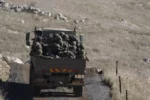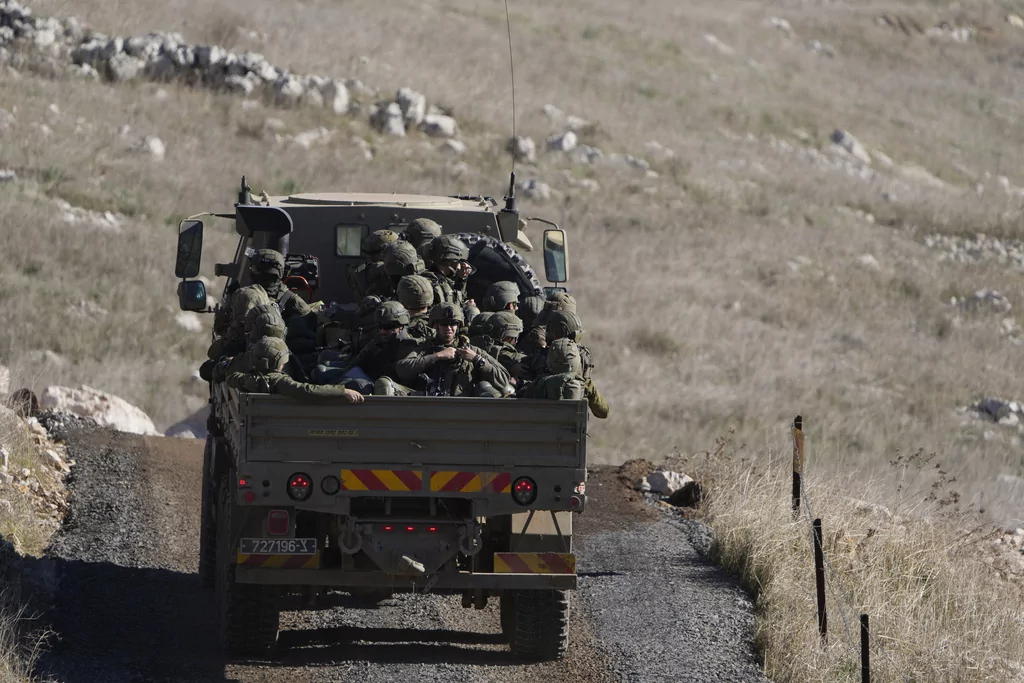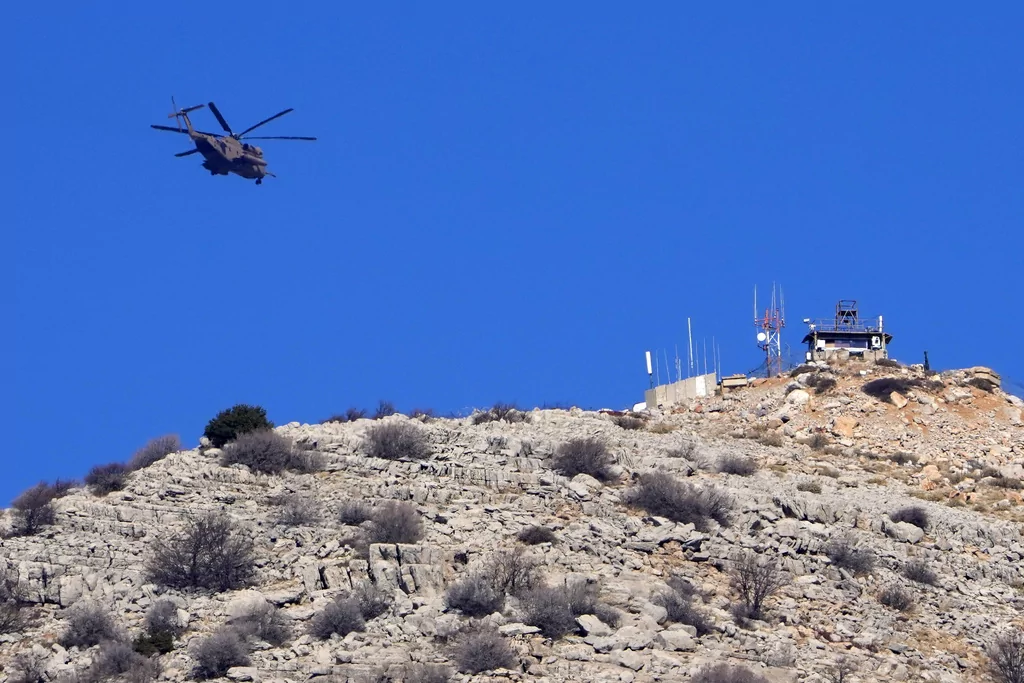
Israel will hold on to swaths of land that formerly served as a buffer zone with Syria — with no plans for exiting the demilitarized region despite international outcry.
Prime Minister Benjamin Netanyahu took a trip on Tuesday to Mount Hermon — the highest peak in the 155-square-mile chunk of land nabbed by the IDF following the collapse of the Syrian government this month.
BIDEN’S ‘TRUMP-PROOFING’ FOREIGN POLICY REVOLVES AROUND UKRAINE AND NATO
The prime minister attended a regional operations briefing with Israel Defense Forces personnel stationed on the mountain. He offered no timeline for exiting the occupied area, alluding only to a need for “another arrangement” between Israel and the new Syrian government.
“We are holding this assessment in order to decide on the deployment of the IDF in this important place until another arrangement is found that ensures Israel’s security,” Netanyahu said in a video address filmed on the peak.

HOW ELON MUSK HELPED WILL TRUMP BACK TO THE WHITE HOUSE
Israeli Defense Minister Israel Katz said Tuesday the military “will stay here for as long as necessary,” referring to the summit of Mt. Hermon and the rest of the occupied region.
The Israeli government has tried to characterize expansion into the demilitarized zone as a defensive measure following the collapse of former Syrian President Bashar al-Assad’s regime. The land incursion was launched alongside a dayslong barrage of airstrikes on abandoned military equipment and infrastructure from the Syrian Arab Army.
Syrian villages even deeper into Syria than the occupied buffer zone have reported IDF personnel threatening locals to completely disarm themselves or face consequences.
The IDF claimed the bombings and land incursion were necessary to ensure that the incoming Syrian rebel leadership — which spawned as an outgrowth of Al Qaeda — does not inherit a war-capable military posture from Assad.
HERE’S WHICH BIDEN EXECUTIVE ORDERS WILL BE THE FIRST TO GO UNDER TRUMP
The United Nations condemned the land incursions as a violation of the 1974 Disengagement Agreement, which established the demilitarized zone and gave UN Peacekeeping Forces authority over Syria-Israel border security.

WHAT TRUMP HAS PROMISED TO DO ON DAY 1 IN THE OVAL OFFICE
The 1974 Disengagement Agreement “needs to be respected, and occupation is occupation — whether it lasts a week, a month or a year, it remains occupation,” United Nations spokesman Stephane Dujarric said this week.
Merissa Khurma, director of the Middle East Program at the Wilson Center, believes it’s clear that Israel is operating “in breach of the agreement” — but it’s not clear if such transgressions mean much to post-Oct. 7 Israeli leaders.
“Yes the Assad regime collapsed, but [the IDF] seem to be in this post-Oct. 7 ‘never again’ defense mentality,” Khurma told the Washington Examiner. “They are, of course, worried about what will come after Assad, because what we have currently, the rebel forces […] are Islamist.”
Syrian rebel leader Ahmed al-Sharaa has acknowledged Israel’s presence in the demilitarized zone and condemned their continued deployment.

TRUMP CABINET PICKS: WHO’S BEEN TAPPED TO SERVE IN THE PRESIDENT-ELECT’S ADMINISTRATION
“We are committed to the 1974 agreement and we are prepared to return the UN [monitors],” Sharaa said in an interview with The Times. “We do not want any conflict whether with Israel or anyone else and we will not let Syria be used as a launchpad for attacks. The Syrian people need a break, and the strikes must end and Israel has to pull back to its previous positions.”
Khurma told the Washington Examiner that Israel’s expanded occupation of Syrian territory is a major obstacle for Sharaa’s government as it tries to establish itself.
“It’s a very delicate situation for [Sharaa and his incoming government] because they do not want to be seen as just standing idle as the Israelis deepen their occupation of Syrian territory,” Khurma told the Examiner. “At the same time, they have quite an agenda ahead of them in order to establish a transitional government that represents the various sects in an inclusive way, to reinstate services. There’s so much to do internally.”
CLICK HERE TO READ MORE FROM THE WASHINGTON EXAMINER
As the rebels work to rebrand themselves as moderate technocrats committed to organizing a peaceful nation, feuding with Israel could damage their image.
Israeli leaders recognize that Syria is disorganized and unstable, exploiting the lack of established leadership as an opportunity to expand borders and establish tighter control over the region.







